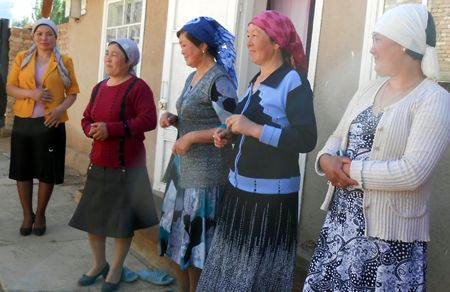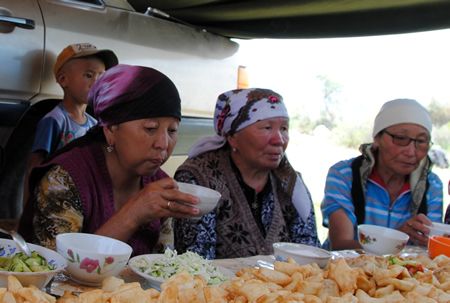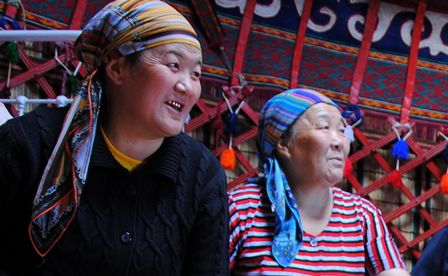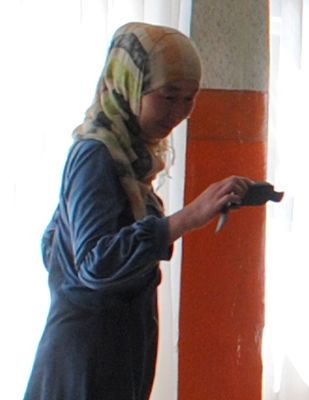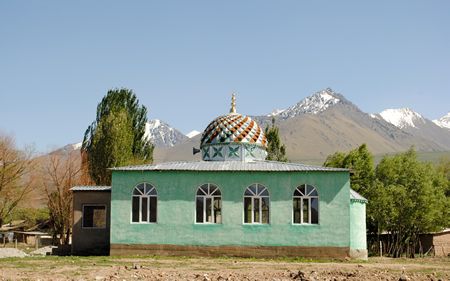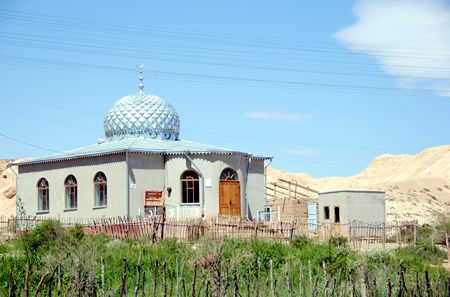July 31, 2013
My initial plan was to
return to Bishkek on Saturday, July 27th. I’d reserved a bed in the
Sakura hostel for the 27th-30th way back in June… but,
this being Kyrgyzstan, a wrench was (of course) thrown into my carefully laid
plans. This particular wrench came in the form of M., an American undergrad
student who, fresh off a year in Russia and a month in Tajikistan, was spending
a week or so in Kyrgyzstan before returning to the US. His local Kyrgyzstan
travel arrangements had been made through The London School. His plans were to
spend Thursday night at the Beach Camp and then return to Bishkek on Friday
night. Logically and logistically, it made far more sense for me to return to
Bishkek with him on Friday night than to have The London School arrange
separate travel for the both of us. Of course, the problem was that Sakura was
packed. I had a bed reserved for Saturday, but there wasn’t space for me for
Friday. We were too late in the planning stages to arrange a homestay through
The London School (such as the one where M. was staying), so I ended up
spending the night at the home of the director of The London School… where Aliman
and Murat from Toguz Bulak happened to be staying as well. (The director is, I
believe, the aunt of their mother.)
In the morning, after
a nice, late breakfast, I made my way to Sakura. When they’d said the place was
packed, I’d had no idea just how packed. There were only two dormitories when I
first stayed there back in May. In June, they opened a third dorm. All of the
beds in all three dorms were full, as were all of the private rooms. And the
floor on the third floor. And the rooftop patio. Considering the solitude in
which I’d spent the previous two months, it was all a bit much.
I had four full days
to spend in Bishkek, although I admit that I did very little. Most of the
Bishkek folks whom I know had left the sweltering heat of the city (and it was
boiling – in the upper 90s, sometimes topping 100F – every day I was there) for
the cool air and waters of Issyk Kul, and the temperatures made wandering about
the city a challenge. On the one hand, after having spent the entire summer being cold, this was quite a welcome change in temperatures. On the other hand... it was bloody hot. I didn’t even carry my DSLR with me most of the time, as
it was simply too hot to lug around something of that size. Yeah. Of course, as
the hostel was not air conditioned, I spent a good amount of time in
“expensive” (by Bishkek standards) restaurants with air conditioning: curry at
The Host, rabbit at У Мазая, Khachapuri at Mimino, pizza at VEFA, and a
calzone at Cyclone. (Cyclone has the best hot chocolate in the world, but as I
was so hot by the time I got there, I couldn’t bring myself to order it; I had
one of their milkshakes instead.)
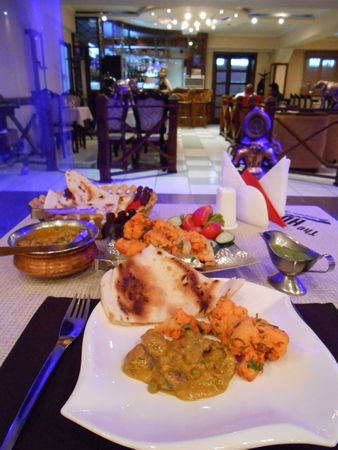
Curry at The Host
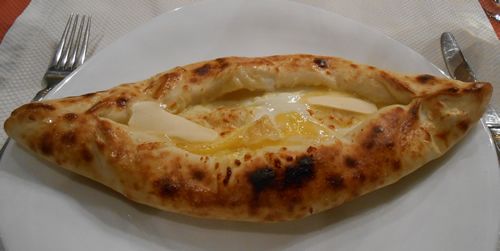
Khachapuri Adjaruli at Mimino
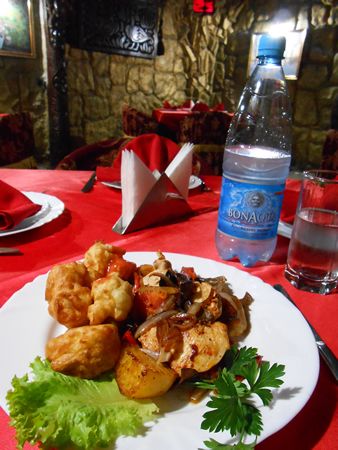
'Hunted Rabbit' at У Мазая
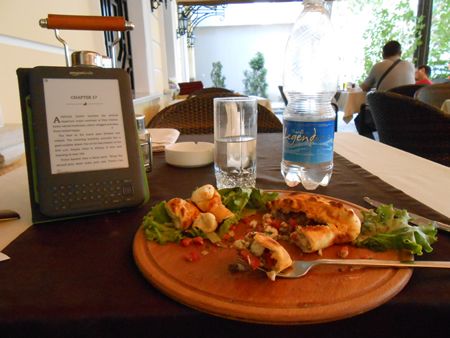
The remains of my calzone at Cyclone
I didn’t just eat my
way through four days in Bishkek; I had errands to run, too. I had to return my
borrowed laptop to The London School, complete with the audio recordings of
myself which I had made for them, tape-scripts, edited texts, and photos of my
volunteering experiences. In turn, I finally received my stipend (haha). I then
spent most of said stipend mailing home the large box of gifts from host
families and students. I also finalized my souvenir/gift buying, and even
braved the heat to wander around the city (albeit with my point-n-shoot). I also managed to get a really great haircut at a place not too far from the hostel. And
that was it, really.
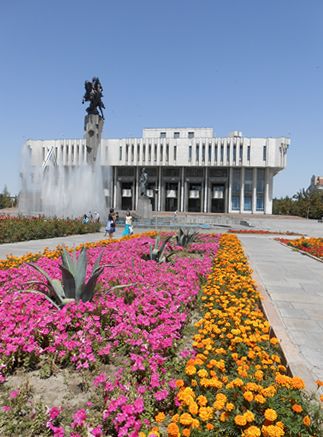
As you can see, the weather was gorgeous. But sweltering, absolutely sweltering.

A really lovely haircut, by a very nice woman... who I must admit was horrified by how long I'd gone since last dyeing my hair. Bishkek and the villages are really different worlds.
At 1:30am on July 31st,
three French tourists (who had been among the masses at Sakura) and I left the
hostel and headed for the airport. Checking in at Manas is definitely a lot
easier without four cats! I did, however, see an elderly gent traveling with
two small dogs – good times. I arrived in Istanbul at 7am local time, and got
to sit through a six hour layover. There was actually a later flight out of
Bishkek, but I would have had less than an hour to catch my flight to the
States. I hadn’t wanted to miss my connection, so I settled for six hours of
mind-numbing boredom. M, on the other hand, chose the latter flight. He and I
were supposed to be on the same flight from Istanbul to New York, but he didn’t
make it in time.
And that’s it, the end
of my summer in Kyrgyzstan. I leave you to contemplate a video I made showcasing how - despite New Zealand's attempts to convince us otherwise - Kyrgyzstan is indeed Middle Earth. You have to click here to download it; YouTube won't let me post it as they say it's a copyright infringement.

